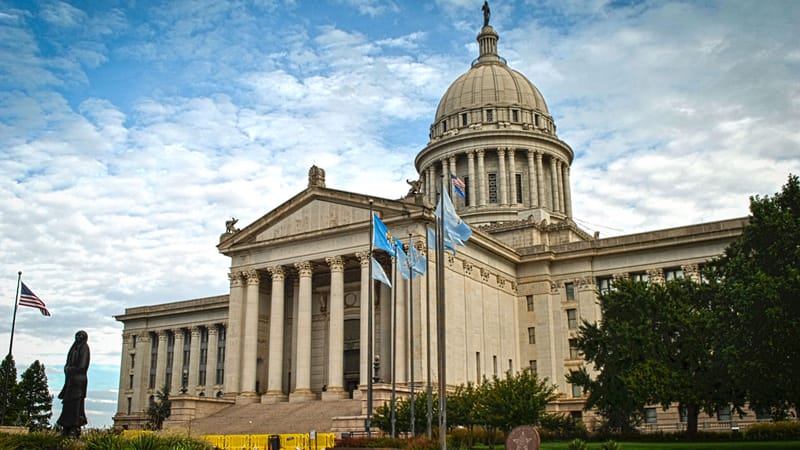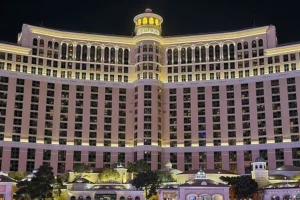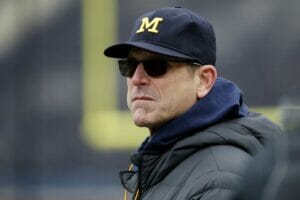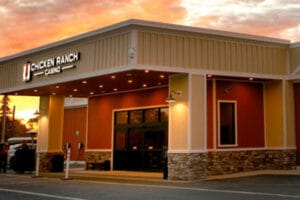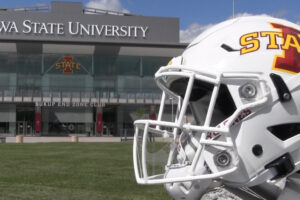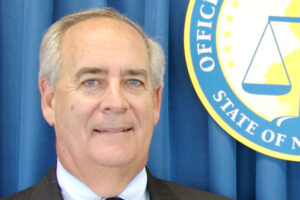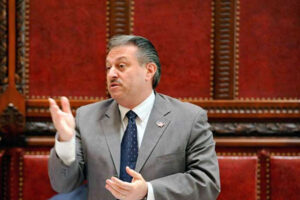Oklahoma Tribal Gaming Compacts Rejected by State Lawmakers
Oklahoma Governor Kevin Stitt’s efforts to modify the state’s approach to Tribal gaming faced another setback this week. The state’s Joint Committee on State Tribal Relations rejected two gaming compacts he negotiated with the United Keetoowah Band and the Kialegee Tribal Town.
The committee expressed concerns that the renegotiated compacts would lead to new Oklahoma casino venues in the state’s most populous counties.
However, Governor Stitt was among those that defended the compacts, alongside his general counsel, Trevor Pemberton. The pair asserted that the agreements would benefit the state by entitling the taxman to a larger share of proceeds from various game types, beyond what is covered by the standard compact, which oversees more than 100 Tribal casinos.
“I don’t understand why these guys can’t game, and the other guys can,” Stitt told reporters after Wednesday’s hearing.
Compacts Previous Invalidated
The debated compacts were originally agreed between the Tribes and the State in 2020. As well as potential new casinos, they would allow the United Keetoowah and the Kialegeeto to build Oklahoma retail sportsbooks. There are currently none in the state.
However, the committee raised concerns over many features of the deals, including a provision that could potentially allow the tribes to open casinos within Oklahoma County, the state’s most populous.
Furthermore, OK Attorney General Gentner Drummond, in a letter to committee members and legislative leaders, asserted that the committee did not have the authority to approve the deals, as they had previously been invalidated by the Oklahoma Supreme Court.
The Court declared the compacts invalid, stating that for these new agreements to be considered valid, they would need to have been negotiated within the framework of the state’s Model Tribal Gaming Compacts, or gained the approval of the Joint Committee on State-Tribal Relations, which has now rejected the compact.
Drummond has been highly critical of Governor Stitt’s negotiations, and has even sought to take charge of a series of legal challenges from other Tribes in Oklahoma. The Cherokee, Chickasaw, Citizen Potawatomi, and Choctaw nations have filed lawsuits against the Interior Department, which oversees Tribal gaming at the federal level, and other defendants.
Some at Wednesday’s meeting saw that ongoing litigation as reason enough to delay ratifying the compacts until proceedings are over.
At the hearing Wednesday, State Senator Kay Floyd (D-Oklahoma City) cited the court cases when explaining why she voted against the compacts.
In the end, the committee unanimously voted to disapprove the compacts. Senate Majority Floor Leader Greg McCourtney expressed his belief that there were “significant fatal flaws” in the construction of one of the compacts.
Related: The best Oklahoma online casinos, rated and reviewed
Decision Hurts, Say Tribal Leaders
After the meeting, the two tribes involved in the compacts publicly expressed their dissatisfaction with the committee’s decision.
“We are disappointed that we didn’t get to tell our side of the story. Today’s defeat, it hurt. It hurts big, particularly not to have the opportunity to discuss these issues,” said Cherokee Indians Chief Joe Bunch.
Governor Stitt also defended the compacts as an effort to let smaller tribes open casinos, an opportunity currently available only to the largest tribes in the state.
“They are federally recognized. I don’t think most Oklahomans know the difference or understand why we wouldn’t allow this Tribe to game if 20 other Tribes are able to game in the state of Oklahoma. That’s what’s a head-scratcher to me,” he said.
There already roughly 130 Oklahoma casino venues, including a casino at Remington Park in Oklahoma County. The biggest Tribal casino operators in the state are the Cherokee Nation, Chickasaw Nation, and Choctaw Nation. Other operators, such as The Osage Nation, who recently opened a casino in Pawhuska and have another planned for Bartlesville, are rapidly expanding.
The United Keetoowah Band also pointed out that they had agree to a much higher tax rate than other casino operators in the state, up to three times as much at 12%.
“If you read the tea leaves, it’s probably because there’s competition and they don’t want a precedent of a smaller tribe competing, and also not one where there’s some transparency and a higher fee in there,” Stitt said in a press conference after the hearing.



